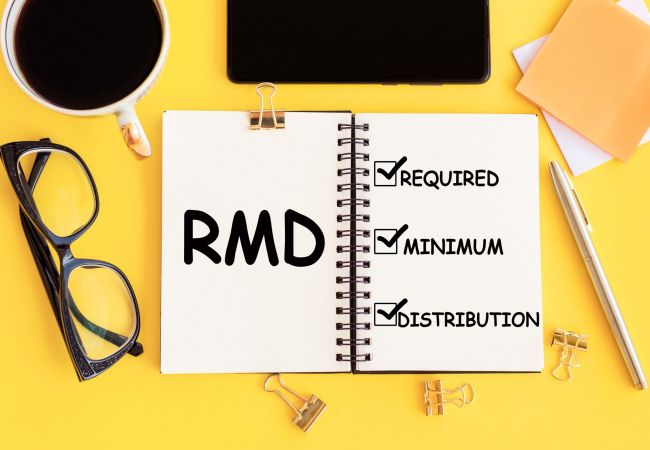- Ed Slott’s IRA Corner
- Why Declining an Inheritance May Make Sense — and How Texas Laws Apply
Why Declining an Inheritance May Make Sense — and How Texas Laws Apply

It may seem counterintuitive, but there are situations where choosing not to accept an inheritance can be the smartest move. Tax reasons, impacts on your own estate planning, or unintended effects on federal benefits can make declining an inheritance beneficial. Texas law, in harmony with federal rules, provides a clear pathway when disclaimers are properly executed.
What Is a Qualified Disclaimer?
A qualified disclaimer is a formal, irrevocable refusal to receive all or part of an inheritance. After you sign and deliver the disclaimer, you’re treated as if you never inherited the property—legally and for tax purposes. In Texas, this concept falls under the Uniform Disclaimer of Property Interests Act (Texas Property Code Chapter 240), effective since 2015.
Why a Qualified Disclaimer Might Be Beneficial
There are several legitimate reasons someone might refuse an inheritance:
- Tax considerations: Inheriting certain assets can push you into a higher income or estate tax bracket. By disclaiming, the inheritance passes to the next person in line—often someone in a lower tax bracket—reducing your tax burden.
- Estate and benefit planning: If you’re concerned about Medicaid eligibility or want the assets to bypass probate and go directly to someone else, disclaiming creates a clean legal pass-through.
- Stretching IRA distributions: Since the SECURE Act limited most non-spouse IRAs to a 10-year payout period, you might disclaim your share if a contingent beneficiary (like a spouse) can use life expectancy tables to receive distributions over a longer period.
How the Law Works in Texas on Declining an Inheritance
Under Texas law—which has no strict nine-month state-based deadline for disclaimers—you must disclaim before taking any action with the inherited property, such as withdrawals or investment changes. Once a disclaimer is effective, it’s final. You cannot revoke it later..
Worth noting: Although Texas imposes no state deadline, to qualify for federal tax treatment, your disclaimer must still comply with the IRS timeframe—generally within nine months of the date of death or when you turn 21.
Practical Example: Declining an Inheritance
Imagine Sarah inheriting an IRA worth $500,000 from her parents. She learns that under the SECURE Act, because she’s a non-spouse beneficiary, she must empty the account in ten years—likely incurring high taxes in her peak earning years. Instead, Sarah properly executes a disclaimer within nine months before accepting any distributions. The IRA then passes to her spouse, who can stretch distributions over their life expectancy. Sarah avoids steep taxes, and her parents’ intended legacy continues to benefit through longer tax-deferred growth.
Next Steps Before You Act
- Make sure contingent beneficiaries are properly named on forms, as disclaiming pushes the inheritance to that next person.
- Do not accept or use any of the inheritance before disclaiming. Touching the assets disqualifies the disclaimer.
- Download our Free Guide, “
- Consult with an attorney familiar with Texas estate law, as disclaimers must meet state- and federal-level requirements for validity. RFG works closely with several seasoned Texas estate attorneys. We work closely with your attorney to make sure your Financial Planning through RFG Wealth Advisory and your estate plan meet the legacy objective that are most important to you.
At RFG Wealth Advisory, we’re trained by America’s IRA Experts and up-to-date on the latest in planning and tax law. If you’re considering a disclaimer—or want to build more flexibility into your legacy plans—call our office at 940‑464‑4104 or schedule a time to meet online via RFGWealthAdvisory.com.
RFG Wealth Advisory in Argyle, Texas, is an independent, fee-only Registered Investment Advisor, and we always put our clients’ interests first. We have a transparent, simple fee structure that’s easy to understand.
Financial success doesn’t happen by chance—it happens with guidance, planning, and execution. Call us today!
Related Posts
“These materials have been independently produced by RFG Wealth Advisory. RFG Wealth Advisory is independent of, and has no affiliation with, Charles Schwab & Co., Inc. or any of its affiliates (“Schwab”). Schwab is a registered broker-dealer and member SIPC. Schwab has not created, supplied, licensed, endorsed, or otherwise sanctioned these materials nor has Schwab independently verified any of the information in them. RFG Wealth Advisory provides you with investment advice, while Schwab maintains custody of your assets in a brokerage account and will effect transactions for your account on our instruction.”
RFG Wealth Advisory is a registered investment adviser with the U.S. Securities and Exchange Commission (SEC). Registration does not imply a certain level of skill or training, nor is it an endorsement by the SEC or other regulators. RFG Wealth Advisory only provides investment advisory services in jurisdictions where it is registered or qualifies for an exemption. This website is for informational purposes only and does not constitute legal, tax, or accounting advice. For more information, see our Form ADV and Form CRS, available at the bottom of this page.
RFG Wealth Advisory
130 Old Town Blvd., S, Ste. 100
Argyle, TX 76226




